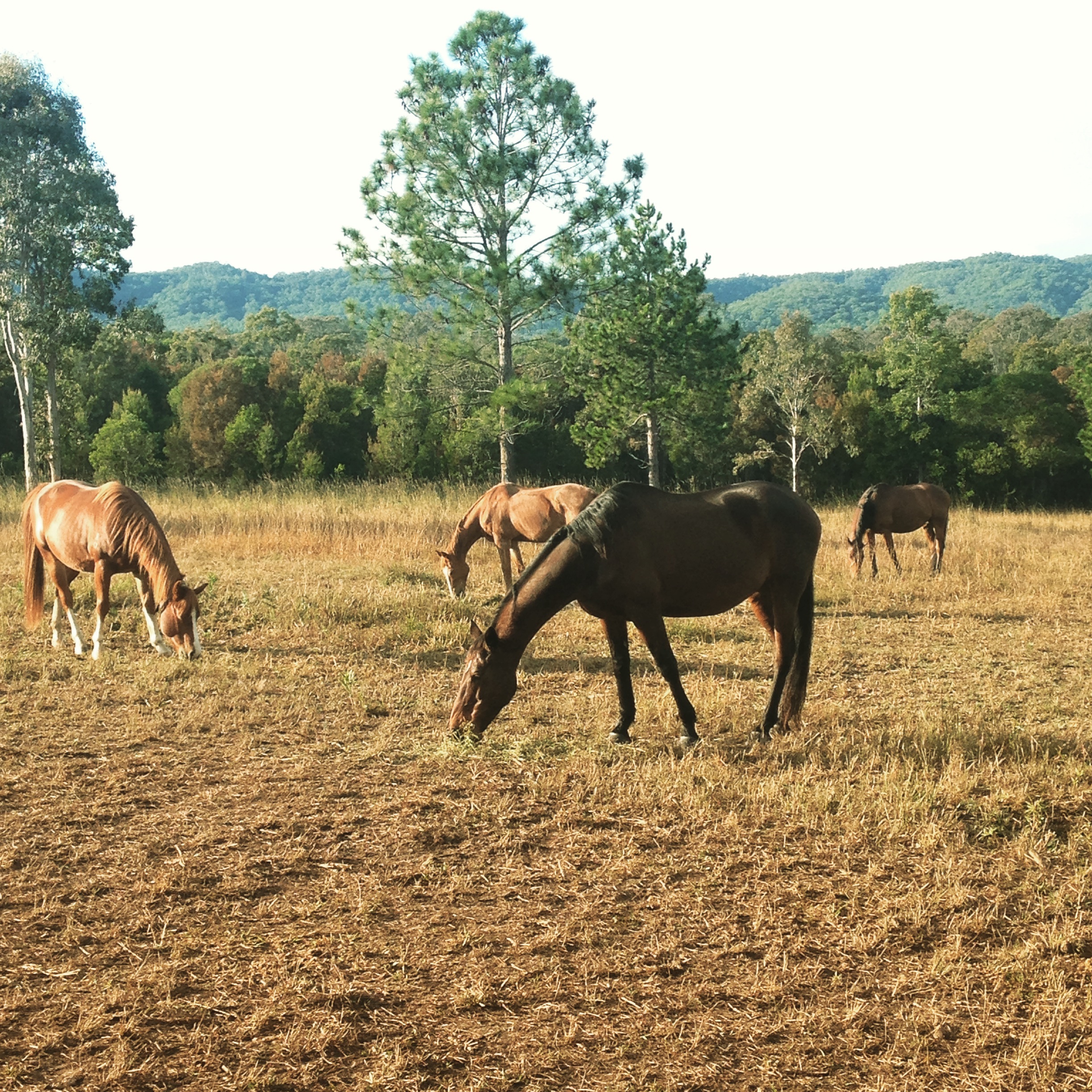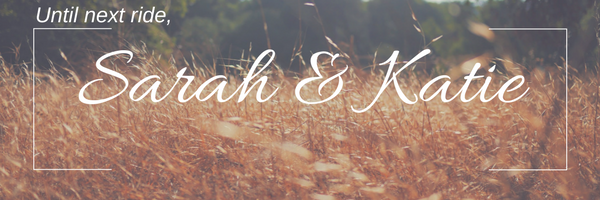What Strengthening Your Bond Will Do For Your Horse
Did you know that herd structure plays a big part in the way we should bond with our horse?
Have you ever wondered why horses are herd animals?
I wouldn’t be surprised if you really haven’t given it much thought. They just are - right?
Or perhaps you think “they are animals of prey, it makes sense to have the advantage of numbers”.
And in a sense, that is true. But a herd offers so much more.
The structure of the herd incorporates:
An alpha that expects discipline, provides security and that they trust.
An alpha that they can ‘test’ to ensure they are being lead by the best.
Herd mates that they share affection with.
Herd mates that share companionship and will play together.
When it comes to OUR interaction with our horse, we need to spend time intergrating ourselves into a similar position of the alpha horse in the herd. By doing so, we can set ourselves the easier task of training and working with a horse that respects us, trusts us and will share affection and connection.
So what are the areas we work on with our bond?
Boundaries:
By establishing boundaries, we can reinforce manners and respect with our horse. And we don’t need to beat them back or bully them into submission to do so.
Affection:
Have you ever watched to paddock mates mutually grooming? Not only is it cute, it has the benefit of reconnecting and re-establishing bond through affection. We love our horses and want them to love us back, so when we practice exercises that encourage affection, our bond strengthens infinitely.
Adventure:
Taking a break from the regular work routine or home routine to take an adventure together is not only a lot of fun, but a great way to reinforce our leadership and to create a level of trust founded on the confidence that your horse knows you will help them process stimuli and keep them from danger.
Companionship:
Spending some time with your horse without expectations is an exercise that actually has a bigger impact on ourselves but still a large impact on your horse. It is also a great assessment of your horse’s expectations from you - their reaction to your presence in the paddock will point you in the direction of what needs more work.
Security:
We (should already be, I hope) providing the basic security for our horses physical well-being, but sometimes we neglect the emotional security. By taking the opportunity to support our horse through these times of emotional crisis, we result in a higher level of trust, more affection, and an extremely strong bond.
How The Herd Changes Your Relationship With Your Horse
Have you ever wondered how the herd influences your working relationship?
Have you ever experienced a change with your horse simply because something has changed in the paddock social circle?
And did it affect your horses behaviour?
Some may say that what happens in the paddock should have no impact on your working relationship with your horse. Some may say that when a horse is in tack, his mind should be in the game.
And to some extent, it’s true.
However, when we don’t take the time to ensure our relationship has ourselves set up as your horses alpha, any changes that happen to the herd will impact your working relationship and your horses confidence levels - sometimes with seriously damaging results.
Understanding how your horse works within your herd structure, the importance of the herd structure, and how you can fit in, will go a long way to improving your relationship with your horse, and result in a stronger, unflappable bond where your horse can look to you for guidance.
The Herd
Have you ever taken time to watch what is happening in a herd? You may have noticed there is a bit of a pecking order, with the lead being taken by the Alpha. Generally, the Alpha is a dominant mare, although in our paddocks filled with geldings, some more of the ‘stallion-minded’ geldings may take the head spot.
It is the role of the Alpha to determine where they will graze, where they will water, and when they need to bolt. The Alpha will be on guard and watchful as the rest of the herd graze or relax.
It is no wonder then, when there are changes to this structure, that the confidence of our horses can change. Some may be thrust into a role that they are not ready for (either because of age, genetics or lack of social skills), and others may come into a herd with limited understanding of how one works (again, due to isolation or lack of teaching from other horses).
The end result could be a horse, previously exceptionally well-behaved (or at least mostly), becoming ‘grumpy’, ‘spooky’, ‘testing boundaries’, or even outright ‘rebelling’. It is the simple attempt of your horse to understand the new behaviours now expected.
This is why it is important for us to step up and become the Human Alpha within the herd.
The Human Alpha
I promise you, I don’t mean for you to spend months camped outside, pretending to eat grass and boss around your horse.
Again, when we look at the herd, it is the Alpha that sets the pace. The Alpha is confident, relaxed, and rarely triggered by their environment. When the Alpha is calm, the rest of the horses are safe. When the Alpha runs, the herd knows it’s time to put some speed on (sure, some horses lower in the pecking order may mess around or bolt when the Alpha is relaxed, but you will notice that the herd itself does not react).
The Human Alpha is simply a process of setting yourself up to be the calm, confident and relaxed leader that your horse knows to look to when he is with you.
By setting yourself up as the leader, you can begin to establish (or re-establish) your horses confidence, and regain the working brain.
Looking for more specific content?
Have a question you are seeking answers to? Send us a message and we will create a blog!






